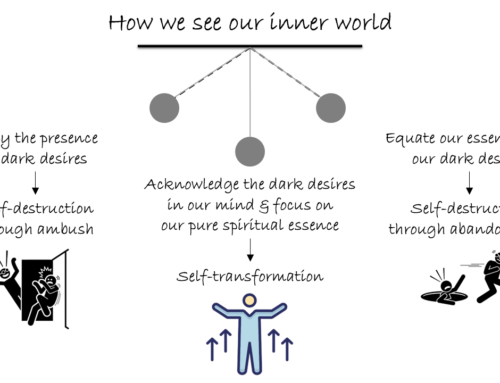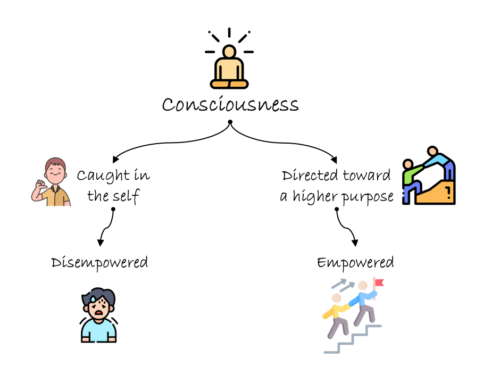Be it attempts to create artificial rains or create artificial life, modern technology frequently aims to bend nature to human will. This desire is essentially the desire to play God, because the controller of nature is God, not man.
Such attempts to play God often promise technological salvation: paradise on earth through technology. This promise has enamored not just billions of humans globally. It has also seduced many of the finest human brains.
The result?Pockets of heavenly comfort and slices of dazzling control – and a planet on the brink of ecocide.
Perilous pollution of air, water and land. Ominous depletion of non-renewable energy sources like fossil fuels. And climate change, a euphemism for environmental super-disasters.
Many eminent thinkers have started recognizing that we need to cooperate with nature, not dominate it. They could be echoing the beginnings of Gita wisdom. The Bhagavad-gita (15.07) indicates that we are parts of Krishna. When we neglect our fulfilling relationship with him and instead seek enjoyment through matter, we struggle and suffer (karshati). Eco-crises are one contemporary version of this misery.
Does cooperating with nature imply that we stop using our intelligence for improving our lives? Not at all.Gita wisdom recommends that we use our intelligence for a far more rewarding purpose: exploring spirit instead of to control matter. The purpose of our intelligence is not to play God, but to play with God.
To redirect our intelligence spiritually, Gita wisdom reveals an endearing vision of the divine: a God who delights not in omnipotent majesty but in innocent play. In the ultimate spiritual paradise, Krishna conceals his divinity to play in love with his devotees. Educating our heart to attain that eternal world where we can play with God – that is the perfection of our intelligence.
Bhagavad Gita Chapter 15 Text 07
“The living entities in this conditioned world are My eternal fragmental parts. Due to conditioned life, they are struggling very hard with the six senses, which include the mind.”



Leave A Comment